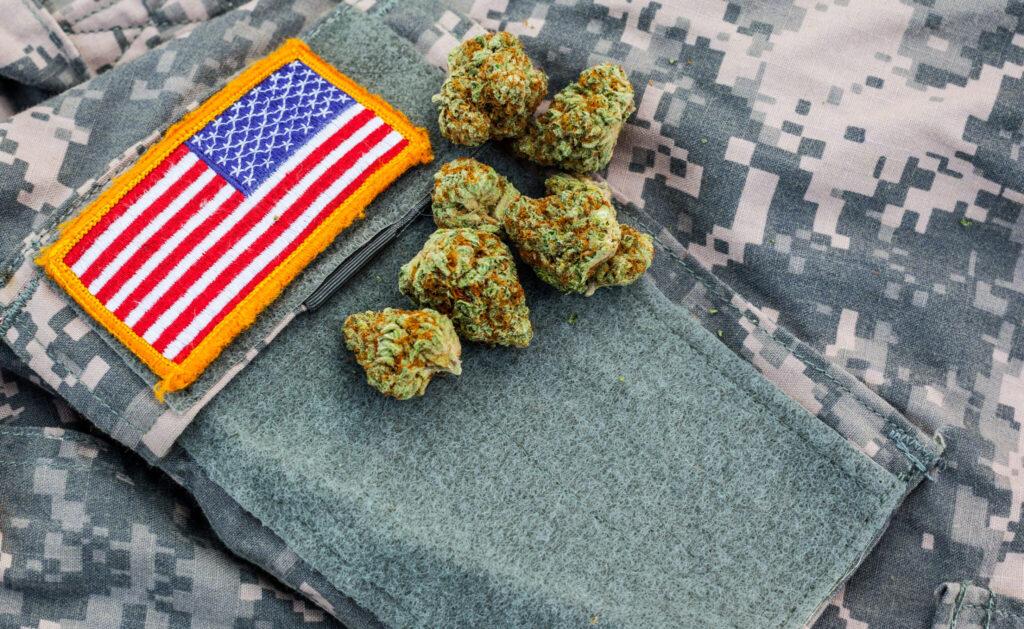Legislation to allow Veterans Affairs doctors to recommend medical marijuana is continuing to garner support in the US House and Senate.

(Photo credit: Getty Images Plus)
Veterans Medical Marijuana Safe Harbor Act (H.R. 2682) was filed on April 18 in the House of Representatives by Congressmember Barbara Lee (D-CA). The following day, a companion measure with identical language was filed in the Senate by Senator Brian Schatz (D-HI).
The Veterans Medical Marijuana Safe Harbor Act would allow veterans “to use, possess, or transport medical marijuana and to discuss the use of medical marijuana with a physician of the Department of Veterans Affairs [VA] as authorized by a State or Indian Tribe, and for other purposes.” Under current law VA doctors are not allowed to even discuss medical marijuana with patients.
On March 29 Congressmember Katie Porter (D-CA) joined on as a cosponsor to the Veterans Medical Marijuana Safe Harbor Act, making her the 16th sponsor in the House and the 27th sponsor in Congress.
The language of the measure is similar to that of the Veterans Equal Access Act, which has 29 sponsors in the House of Representatives.
In November, by a vote of 82 to 15, the full United States Senate gave approval to the Military Construction, Veterans Affairs, and Related Agencies spending bill, which included a provision put forth by Senator Jeff Merkley (D) that would allow doctors at the Department of Veterans Affairs to legally recommend marijuana to their patients, something that’s currently prohibited. In July, the House of Representatives passed a similar, but slightly different, version of the same provision.
Specifically, the Senate version of the provision states that “None of the funds appropriated or otherwise made available to the Department of Veterans Affairs in this Act may be used in a manner that would interfere with the ability of a veteran to participate in a medicinal marijuana program approved by a State”, or “deny any services from the Department to a veteran who is participating in such a program”, or “limit or interfere with the ability of a health care provider of the Department to make appropriate recommendations, fill out forms, or take steps to comply with such a program.”
